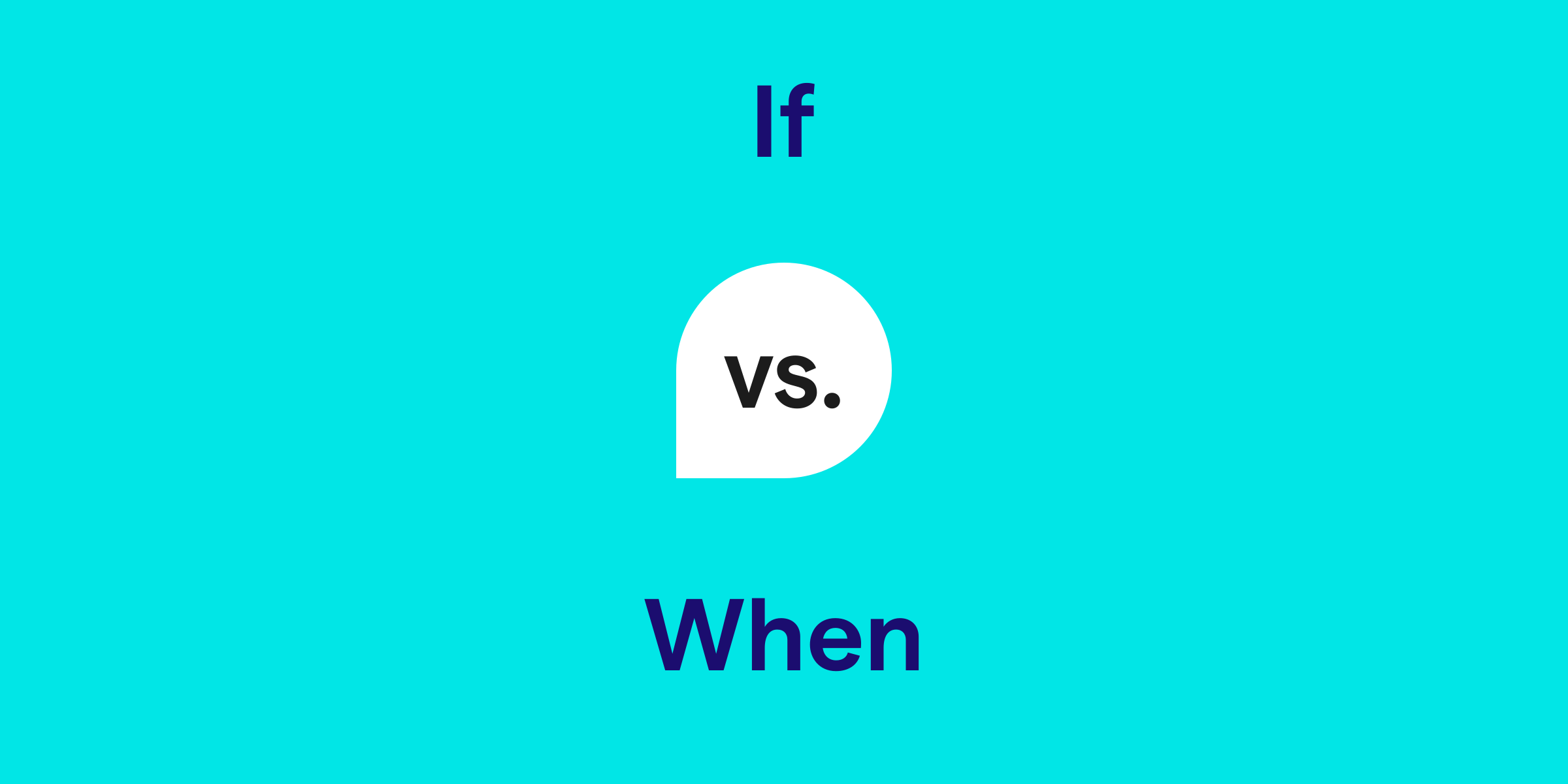If vs. When: What's the Difference?
The words if and when may seem similar but they serve different functions in a sentence. If is used to discuss conditional or uncertain events, indicating the possibility that an event may or may not happen. On the other hand, when is used when you're certain that an event will happen, and it pertains to timing rather than conditionality.

How do you use the word if in a sentence?
The word if introduces a condition that must be met for something else to happen. It sets up scenarios and hypotheses, often related to the future or to an uncertain present. When you want to speculate about an event that could depend on another, or to set a specific condition for an event to occur, use if.
Examples of if in a sentence
- Let me know if you're coming to the party.
- If it rains, the event will be canceled.
- I'm curious if she found her lost cat.
How do you use the word when in a sentence?
The word when is used to refer to the time at which an event occurs. It is certain that the event is expected to happen, and when connects the timing of events in the main clause and the subordinate clause. It is often used in questions to ask about the time of an event.
Examples of when in a sentence
- When the clock strikes twelve, the celebration will begin.
- Do you remember when we went to Paris together?
- She always calls me when she arrives at the airport.
If and when definition, parts of speech, and pronunciation
If definition:
A conjunction that introduces a conditional clause, expressing that a particular situation or event must happen for another situation or event to occur.
If parts of speech:
If pronunciation:
Pronounced as /ɪf/, the word 'if' is a very short sound that resembles the 'i' in 'it' and the 'f' in 'fish.'
When definition:
An adverb, conjunction, or pronoun used to indicate the time or period in which something happens, or the precise time that something occurred.
When parts of speech:
When pronunciation:
Pronounced as /wɛn/, the word 'when' starts with a consonant sound similar to 'w' in 'win' followed by the vowel sound as in 'bet.'
A conjunction that introduces a conditional clause, expressing that a particular situation or event must happen for another situation or event to occur.
If parts of speech:
- As a conjunction: If you finish your homework, you can play video games.
If pronunciation:
Pronounced as /ɪf/, the word 'if' is a very short sound that resembles the 'i' in 'it' and the 'f' in 'fish.'
When definition:
An adverb, conjunction, or pronoun used to indicate the time or period in which something happens, or the precise time that something occurred.
When parts of speech:
- As an adverb: When are you planning to leave?
- As a conjunction: I was watching TV when the phone rang.
When pronunciation:
Pronounced as /wɛn/, the word 'when' starts with a consonant sound similar to 'w' in 'win' followed by the vowel sound as in 'bet.'
If vs. when in a nutshell
In summary, if is used for conditional statements where there's uncertainty about whether an event will happen, while when is certain and relates to the timing of events. Understanding the difference between these two conjunctions will allow you to convey precise meanings and manage expectations in your communication.
Get AI Writing Assistance Wherever You Type
Make sure your vocabulary is on point and every punctuation mark is in the right place, no matter where you’re working. Grammarly works across more than 1 million websites and apps so you can improve your writing without copying, pasting, or breaking focus.

More Commonly Confused Words
Interest piqued? Pore (not pour) over other commonly confused words to help your writing reach peak (not peek) performance.